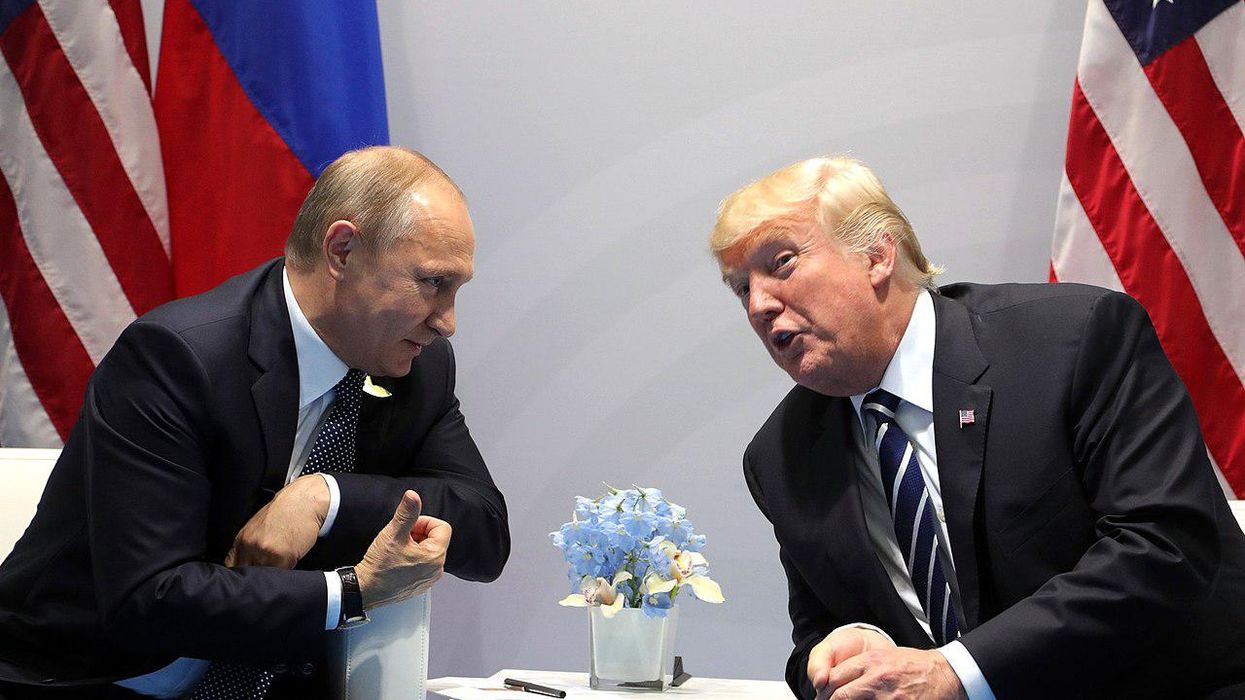President Donald Trump’s chaotic style of governing, with its rapid executive orders, bold foreign policy threats and enrichment of Trump’s own personal businesses, can be defined by an obscure 100-year-old term, contributing writer Jonathan Rauch wrote at the Atlantic on Monday. The term, patrimonialism, traces back to German sociologist Max Weber.
In essence, patrimonialism refers to a system where the leader treats the government as their own personal project based on “individual loyalty.” The opposite of bureaucracy, it is based around more informal leadership. This system can also be seen in Vladimir Putin’s Russia and Narendra Modi’s India.
“Patrimonialism is less a form of government than a style of governing,” Rauch writes. “It is not defined by institutions or rules; rather, it can infect all forms of government by replacing impersonal, formal lines of authority with personalized, informal ones. Based on individual loyalty and connections, and on rewarding friends and punishing enemies (real or perceived), it can be found not just in states but also among tribes, street gangs, and criminal organizations.”
READ MORE: 'I feel trapped': Frustrated homeowners overwhelmed by 'exploding' costs at every turn
“Patrimonialism explains what might otherwise be puzzling,” he writes. For example, “He broke with 50 years of practice by treating the Justice Department as ‘his personal law firm.’ He treats the enforcement of duly enacted statutes as optional—and, what’s more, claims the authority to indemnify lawbreakers. He halted proceedings against January 6 thugs and rioters because they are on his side. His agencies screen hires for loyalty to him rather than to the Constitution… The presidency itself is treated as a business opportunity.”
While inherently corrupt, patrimonialism is not automatically antidemocratic. Rather, its opposite is bureaucracy, like the authoritarianism of Nazi Germany, where Hitler claimed power through codes and rules.
“A leader may be democratically elected but still seek to legitimate his or her rule patrimonially. Increasingly, elected leaders have sought to demolish bureaucratic administrative states (‘deep states,’ they sometimes call them) built up over decades in favor of rule by family and friends,” Stephen E. Hanson, a government professor at the College of William & Mary, and Jeffrey S. Kopstein, a political scientist at UC Irvine write in “The Assault on the State: How the Global Attack on Modern Government Endangers Our Future.”
READ MORE: Trump firings of federal workers will 'absolutely' affect the economy: historian
The style can also be seen in Putin’s Russia. “Seeking to make the world safe for gangsterism, Putin used propaganda, subversion, and other forms of influence to spread the model abroad. Over time, the patrimonial model gained ground in states as diverse as Hungary, Poland, Turkey, and India,” Rauch writes.
“India’s Narendra Modi, Hungary’s Viktor Orbán, and Trump himself are examples of elected patrimonial leaders—and ones who have achieved substantial popular support and democratic legitimacy. Once in power, patrimonialists love to clothe themselves in the rhetoric of democracy, like Elon Musk justifying his team’s extralegal actions as making the ‘unelected fourth unconstitutional branch of government’ be ‘responsive to the people,’” he writes.
But patrimonialism is ultimately a threat to democracy. “As patrimonialism snips the government’s procedural tendons, it weakens and eventually cripples the state. Over time, as it seeks to embed itself, many leaders attempt the transition to full-blown authoritarianism,” Rauch adds.


